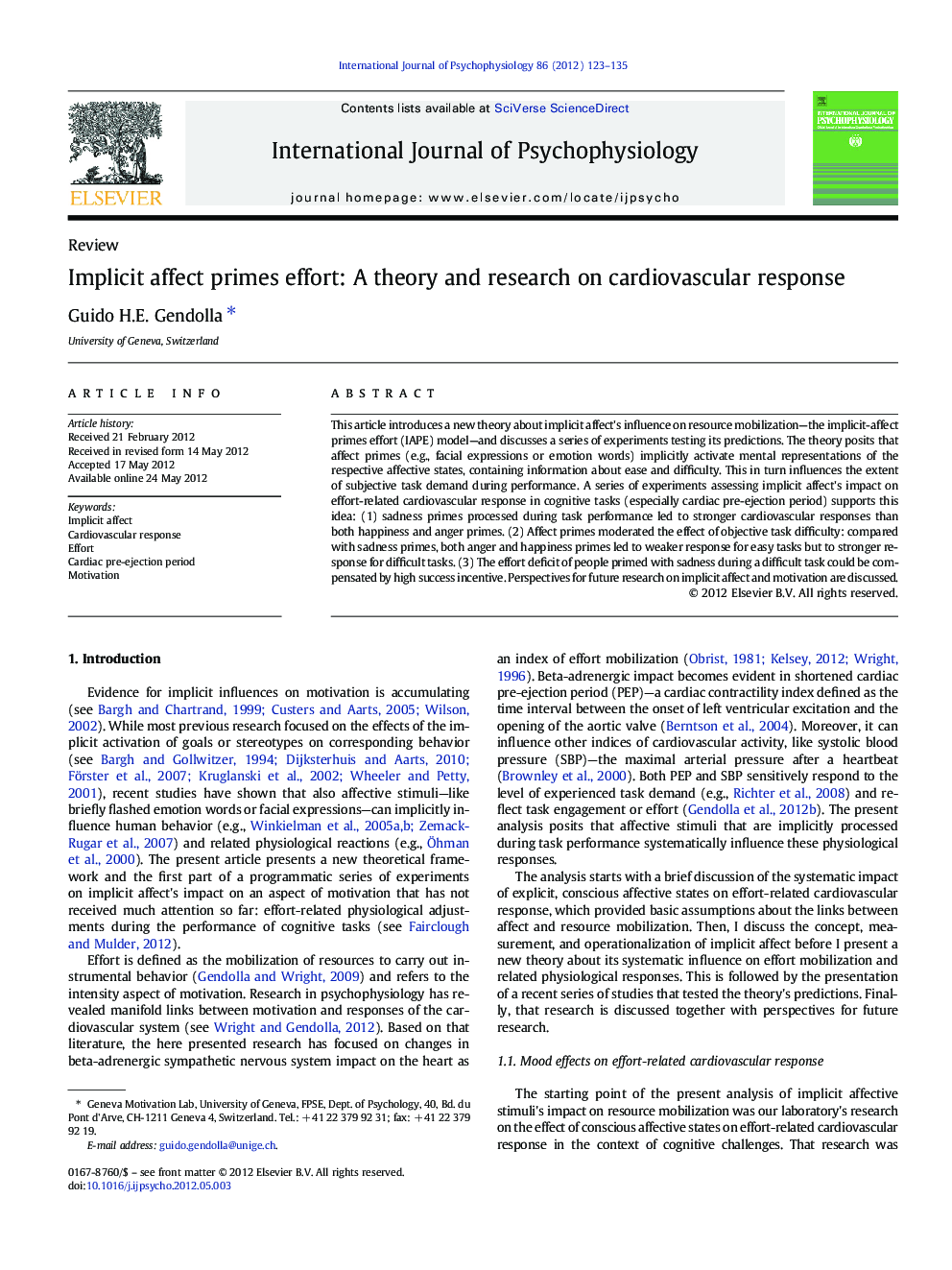| Article ID | Journal | Published Year | Pages | File Type |
|---|---|---|---|---|
| 931182 | International Journal of Psychophysiology | 2012 | 13 Pages |
This article introduces a new theory about implicit affect's influence on resource mobilization—the implicit-affect primes effort (IAPE) model—and discusses a series of experiments testing its predictions. The theory posits that affect primes (e.g., facial expressions or emotion words) implicitly activate mental representations of the respective affective states, containing information about ease and difficulty. This in turn influences the extent of subjective task demand during performance. A series of experiments assessing implicit affect's impact on effort-related cardiovascular response in cognitive tasks (especially cardiac pre-ejection period) supports this idea: (1) sadness primes processed during task performance led to stronger cardiovascular responses than both happiness and anger primes. (2) Affect primes moderated the effect of objective task difficulty: compared with sadness primes, both anger and happiness primes led to weaker response for easy tasks but to stronger response for difficult tasks. (3) The effort deficit of people primed with sadness during a difficult task could be compensated by high success incentive. Perspectives for future research on implicit affect and motivation are discussed.
► New theory about implicit affect's influence on resource mobilization is presented. ► Implicit affect is posited to influence effort-related cardiovascular response. ► Implicit affect does so by its impact on subjective task demand. ► A series of studies supporting this idea is discussed.
